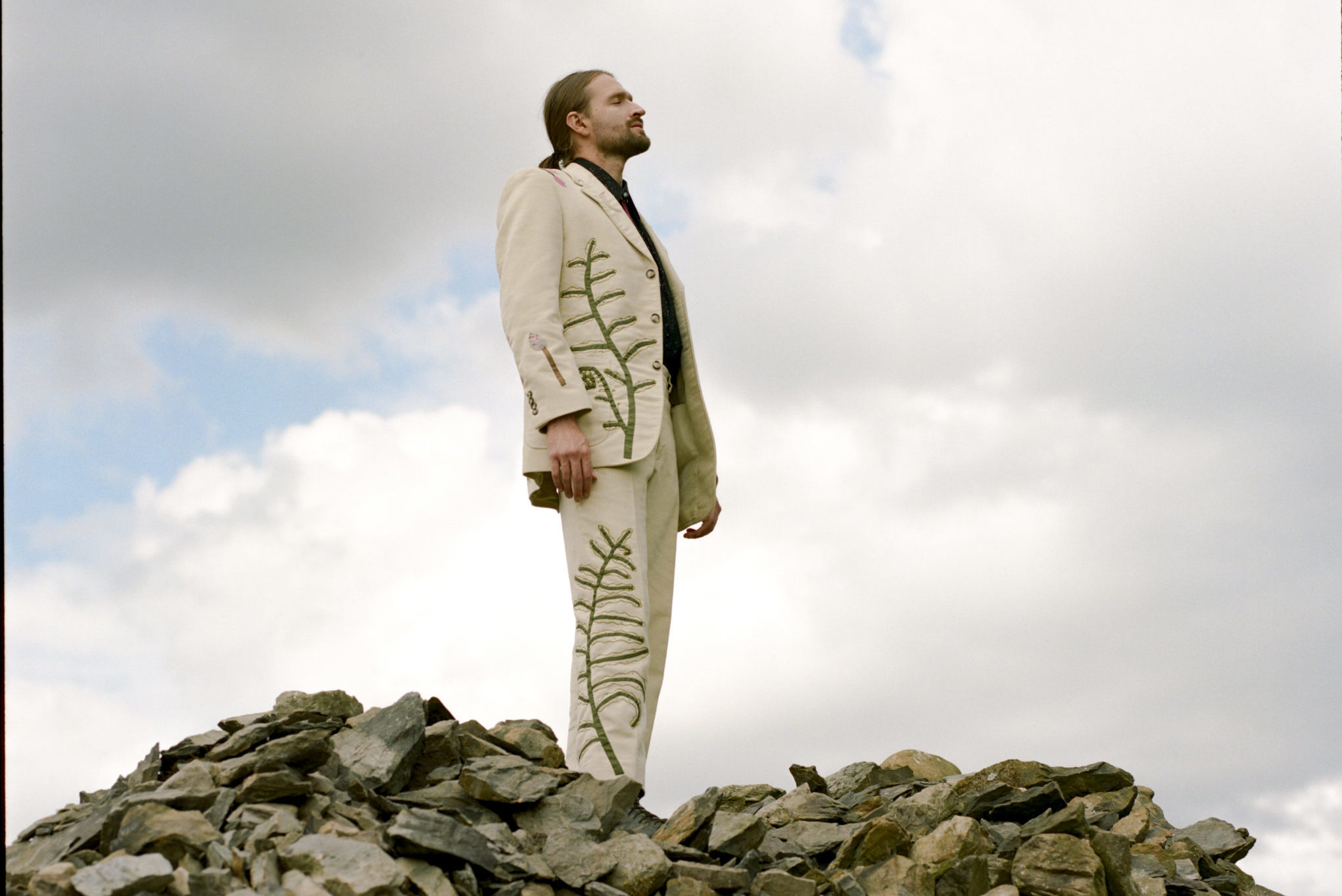Diviner is a deeply emotional album: lyrically generous in its candid tone and self-awareness, the melodies resonant with sense memory. Weaving piano, ambient guitar drifts, rainbow chords, propulsive bass lines and cosmic synth washes are some of the brushstrokes while the songs often twist and turn, confounding sonic expectations. It feels like a startling departure from Thorpe’s previous work and also unlike anything else being made at the moment. Throughout the record, his voice is a beacon, sounding even more powerfully unfettered than before, as if he’d found a new inner voice, a new way to use his instrument. Upon returning to London, Thorpe turned to his piano for starters. “In the snowglobe of that time, the piano was the most earth-bound object in my house,” he says. “It became a totem. It was the predictability of it. This sequence of notes in this order, this alignment of mechanics, was reassuring. It was a coal-face to mine from: what can you do with this sequence of notes? Then I became embroiled again in the mystery of song.” “I broke up with myself. So this is a break-up album, but not about a relationship. It’s a break-up from a past self, it’s a breakup from the old idea of yourself and therefore every relationship, of all kinds, that you’ve ever had.” Despite a period of identity-interrogation, the album doesn’t sound anguished or sentimental. It has an equilibrium and a sophisticated tone. “I was assuming my natural shape,” says Thorpe. “I was coming back to myself and picking up bits that I left behind a long time ago for greater causes and greater reasons and there was an emotional stock-check.” Diviner exists on its own terms. It has a unique intimacy and open throbbing heart: at times it is honeyed, gentle, and elegantly simple, at others it is voluptuous and shiver-giving and brims with propulsive emotion. With a unique identity as to Thorpes life course and an unusual philosophical depth, this is a very special debut album indeed.
